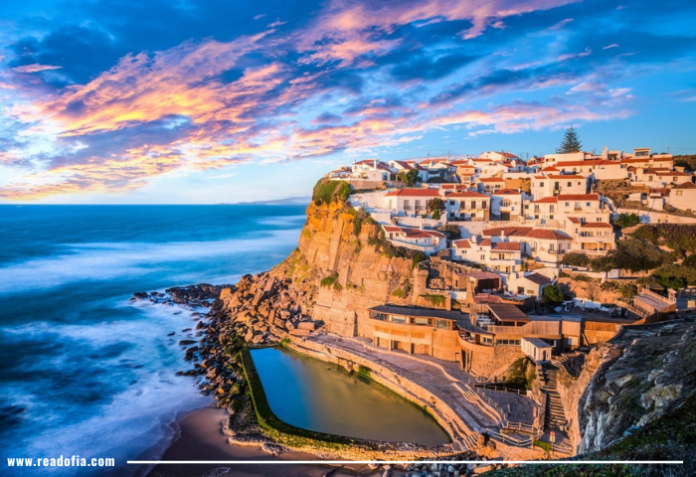Portugal, a country in Southwestern Europe, has most of its area in the Iberian Peninsula. It is the oldest nation in the Iberian Peninsula, and it has faced a lot of severe invasions, struggles and settlements since prehistoric times. Romans came to Portugal after Celts and Germanic tribe’s invasion. it was established in 868 during the early Christians Reconquista. The Kingdom of Portugal was recognized independence from Leon by the Treaty of Zamora in 1143. Portuguese are the indigenous peoples of Portugal. They are romanized after the conquest of the region by Romans. Portuguese ethnic groups are Celtic peoples, Galicians, Romance peoples, German tribes (Suebi, Vandals, and Visigoths), White Brazilians, White Angolans, and Portuguese Africans.
Land
With its territories on the Iberian Peninsula and in the Atlantic archipelagos, the total land area 92,212 square kilometers. The Madeira and Azores are the two Atlantic archipelagos. Atlantic Ocean borders Portugal in the west and south and Spain in the north and east. Its main river, the Tagus from Spain, splits mainland Portugal. Its northern part was mountainous with some plateaus on the interior, and its southern part is rolling plains. Portugal’s economic zone is the third-largest in the European Union. Lisbon and Northern Littoral are the two largest metropolitan regions .
Population
Portugal Country’s population in 2019 was 1.03 Crores , and its population density was 111.1 people per square kilometers. The life expectancy of both males and females at birth was 82 years. The median age was 43.7 years. On its total population, 95.3% are from the Portuguese ancestry, and other groups constituted the remaining 4.7%. The net migration rate of Portugal in 2020 is -0.034 per 1000 population, and it is having 65.2% of the urban population.
Religion
As Christianity is the main of Portugal Country, Roman Catholicism is very dominant among most of its population. Portugal was also home to some smaller groups of Protestants, Orthodox, Hindu, Muslim, Sikhs, Buddhist, Jewish, Baha’i, Saint, and Spiritists. A census in 2011 shows Portugal has 81% of Roman Catholicism, 3.3% other Christians, 0.6% other religions, 6.8% non-religious, and 8.3% unspecified.
Language
The official language of Portugal is Portuguese; it was derived from Latin, which was spoken by Roman Celts, Conii, Lusitanians, and Turduli peoples of the Iberian Peninsula before the Romanic era. Mirandese is recognized as a regional language in some municipalities.
Economy
Lisbon is the Capital of Portugal. Agriculture is one of the primary sector of Portugal. They are the largest producers of crops, fruits, vegetables, and livestock products. Portugal has a tradition in the fishing sector, and its fish consumption per capita is highest. Portugal’s GDP (nominal) in 2018 was $240.675 billion, and it has a GDP growth of 2.4% annually. Lisbon and Porto(second biggest city in the country) are the business and financial centers of Portugal. Portugal has industries in the fields of automobile, aerospace, electronics, food processing, chemical, and textile. Leading tourist destination in Europe, and it is among the top 20 in the world. Portugal was the founding member of NATO, the eurozone, the OECD, and the CPLP. Portugal ranks 3rd for its peacefulness, 7th for democracy, and 26th for prosperity. Its HDI value of 0.850 shows it has a very high human development category.
Healthcare
The National Health Service (SNS), Special Social Health Insurance Schemes, and Voluntary Private Health Insurance are the three Healthcare provider organizations of Portugal. The management of SNS and developing health policy are the responsibilities of the Ministry of Health. According to OECD, healthcare expenditure of Portugal in 2017 was EUR 2029 per capita (9% of GDP) , less than the EU Average(2884). Since 2000, Portugal saw a continuous increase in the life expectancy of people, which is higher than the average life expectancy of the European Union. Portugal spends half of the health budget for outpatient care. In 2017 it spent at EUR 994 per person.According to the World Bank Report in 2018, Fertility rate, total (1.4 births per woman), Mortality rate, under-5 (4 per 1,000 live births), and births attended by skilled health staff 99%.
Tourism
Portugal tourism serves millions of international tourists a year. Foreign visitors come to Portugal to visit the ancient cities, historical landmarks, religious sites, and for enjoying beaches. Portugal’s tourist sector has earned €15Bn in 2017 and €17Bn in 2018. Portugal received 22.8 million tourists in 2018, ranked 17th among the world countries. In 2019, it received 27 million tourists.United Kingdom, Spain, France, and Germany are the primary source of visitors to Portugal. The most popular tourist sites for international tourists are in Lisbon, Porto, Fatima, Northern Portugal, Central Portugal, Madeira, Alentejo, the Portuguese Riviera, and the Algarve. The cultural and natural heritage sites are designated as UNESCO World Heritage sites. There are 17 UNESCO World Heritage sites located in Portugal.
FAQ
What is Portugal famous for?
- Portugal is famous for its Port Wine. It is a natural fortified wine produced exclusively from grapes.
- Pastel de Nata or Pastel de Belém is one of the most famous Portuguese desserts.
- Football is one of the most important cultural elements Portugal is famous for.
- Portugal is famous for its golf destination. Algarve in Portugal is the most popular golfing destination in Europe.
- Portugal is famous for its own musical kind, Fado.
Is Portugal a developed country or not?
Yes. Portugal is a developed country with advanced economy and high living standards.
Where is Portugal country?
Portugal country is situated on the Iberian Peninsula, in south-western Europe. It is bordered by the Atlantic Ocean in the west and south and Spain in the north and east.
Is Portugal a poor country?
No. Portugal was the world’s most prosperous country when its colonial empire in Asia, Africa, and South America was at its pinnacle.

